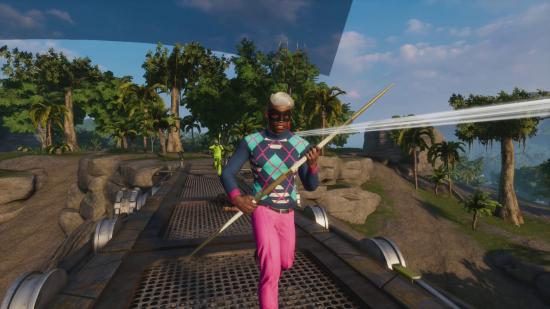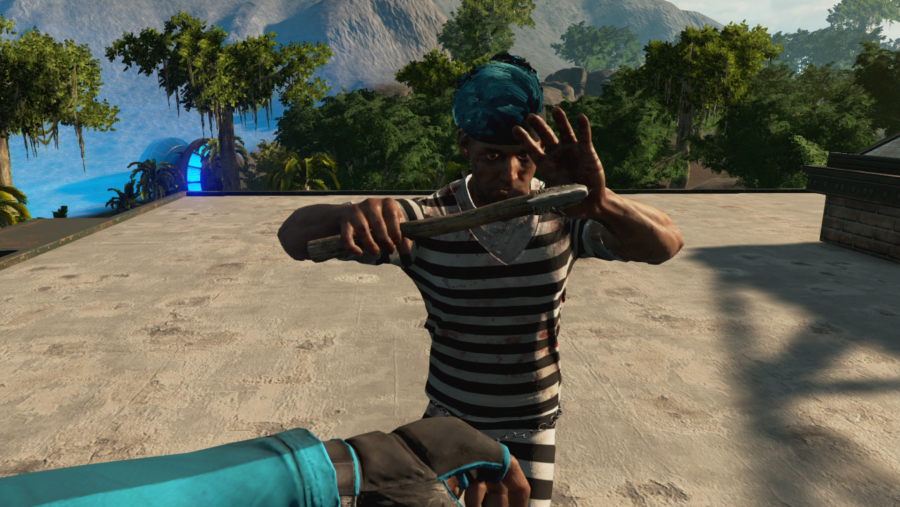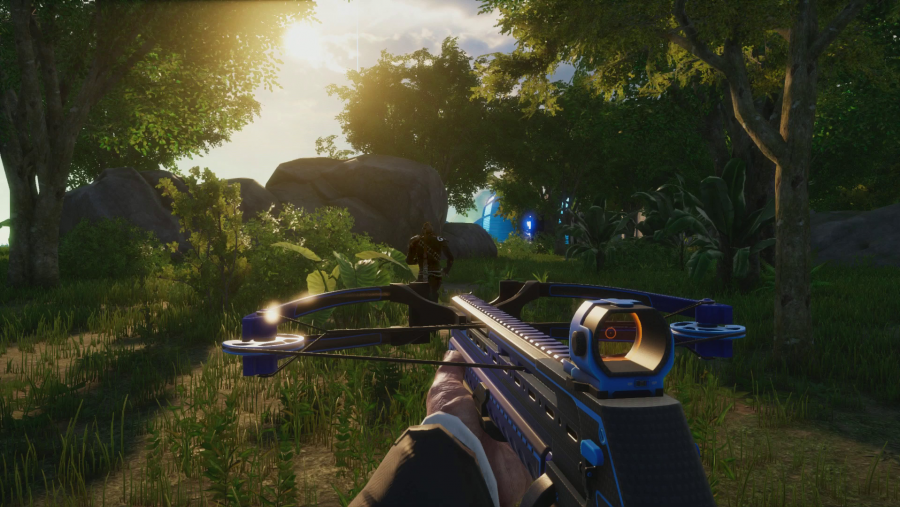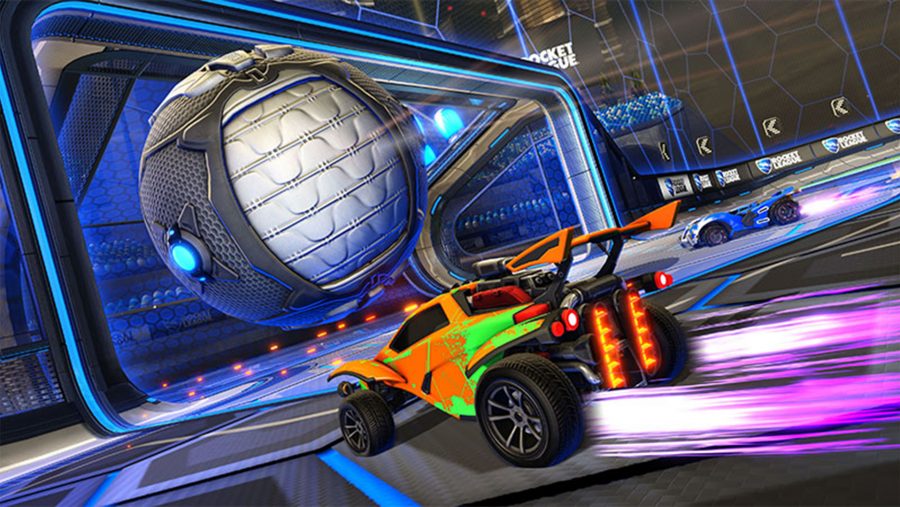Shortly after The Culling: Origins launched its free-to-play version, we spoke with Josh Van Veld, director of operations at developer Xaviant. He was generous with his time, and in a wide-ranging interview, we covered The Culling’s conception, evolution, failed reincarnation as The Culling 2, and eventual relaunch.
One of the key themes in that story has been the game’s passionate community, to which Van Veld admitted that Xaviant “literally didn’t know how to listen.” The Culling was the first built-from-scratch battle royale, launching after PlayerUnknown’s Arma mods but before his standalone battle royale sensation, PUBG. Consider the kind of discussion this genre generates: for a small developer of only 20 people, whose previous games were far more discrete experiences, dealing with even a fraction of this kind of feedback must have been overwhelming.
In the final part of our interview with Van Veld, we discuss Xaviant’s baptism in the fire of community toxicity, how the studio is handling it now, how even the most bad-tempered individuals can seemingly be brought round, and the role of streamers in promoting battle royale games. You can read the first part of our interview, on The Culling’s journey and the awful moment he realised The Culling 2 had failed, here.
PCGN: What have been the main challenges in dealing with the torrent of community feedback over the last few years?
Josh Van Veld: It’s hard to establish a holistic interpretation of the community’s stance, because you can always cherrypick what you want to hear. If a bunch of people are shouting in a room, and one is shouting things that line up with your perspective, you tend to want to listen to that person. And when people got really toxic, that made it easier for us to say ‘they just like being toxic, there’s no way to make them happy so what’s the point trying? We’ll just ignore them, even if they’re making valid points.’
Maybe we were looking for a magic bullet, and my view on it now is that you can’t approach it from just one angle. You need a strategy that is going to apply across the board, so yes, we should ensure new players are having a better time, but what’s the answer to that? We learned that changing mechanics to make them easier to use is a big mistake. Our perspective now is for there to be skill-based matchmaking that keeps the pros away from the newbies, and to have enough population for you to get a match with 15 other players of a similar skill level.
That’s the experience people had on day one of The Culling – nobody knew how to play and everybody had a great time. If you’ve got one player in a match who is very good and 15 who don’t know what they’re doing, that one player is going to hand a very bad experience to everybody else, and those other people are very unlikely to come back.
The Culling was the first standalone battle royale, but it was PUBG that blew up. Why do you think that was? Do you feel any jealousy?
I definitely don’t think there’s jealousy. I think PUBG took off because it’s such a special and innovative thing. Weapon modifications made looting in PUBG a full-match experience, whereas in say, H1Z1 – at the time at least – it was like you were geared up within the first minute, and then it was much more a run-and-gun experience, with very little aiming down sights. You’re just putting your crosshair on people and clicking and bunny-hopping around.
PUBG had scopes and important mods that made a real difference in the gunplay, so it was more a hardcore tactical shooter, but because of the battle royale aspect it felt very accessible. And because it was standalone you didn’t need to buy some old game and figure out how to download a mod for it and all that stuff, which is really intimidating for a lot of players, even on PC. It was ultra rough on day one – I got it right when it came out – but they made progress and got to the point where anyone who had a decent machine could have a good experience, and given that, it was amazing.

So the hardcore initial fan base who knew PlayerUnknown and his reputation probably got the ball rolling, but I think the game stood on its own.
Did its success influence you?
We were inspired by it, but in some ways we may have been blinded to what was special about what we had. We were convinced that if you wanted to be a successful battle royale game, it needed to be a shooter. So when The Culling 2 failed, and failed really hard, that was the shock we needed to say ‘what options are on the table here, realistically?’ Pursuing The Culling 2 wasn’t realistic, so we internally came to the same conclusion that we saw people on the internet saying. It was like: ‘do what we’ve been telling you to do all along: go back to day one, and make it free-to-play’.
The Culling 2 was not the best game it could have been, but we realised the reason people were so disappointed was they thought they were getting a better version of The Culling, and that’s what anyone who was a fan of the game originally was hoping for. No wonder they were so upset with us when all they wanted was the game that they loved in the first place.
And as soon as we said that’s what we’re going to do, a lot of people who had been very, very angry with us, many of them extremely toxic – like, really, really badly toxic – immediately turned around and said ‘yeah, we’ll give you guys a second chance’. We couldn’t believe it. We thought those people were a lost cause who would forever be against our studio, and as soon as we said ‘you know what? You guys were right, and we’re going to do what you guys want us to do’, they said ‘oh, that’s awesome! Great, we support you’. It was just amazing.
Does this mean there’s hope for any community?
It’s been really surprising. I do believe that there are people out there who are just trolls, and that’s how they enjoy being online, but in the case of our existing, small community I think a lot of them felt like they had no choice but to be toxic. We didn’t seem to be listening, and there wasn’t a lot for them to be happy about.
You’ve said you initially didn’t know how to listen to the community. What practices have you put in place to process their input now?
Our approach now is to say ‘hey, we are listening to what people are saying, we’re thinking about the game, and we’ve developed a plan’. In the past, we’d have literally just rolled it out as an update to the game, and then if people didn’t like it we would’ve tried to convince ourselves that that was okay.
But now, we write up the plan, we present it to the community, and we say: ‘you guys can participate in a survey and tell us what you think’. Roughly speaking, our internal gauge is that if we get 75% or more support for something, then we are good to go, right? You can’t please everybody. But if it’s 50/50, then that probably means we need to go back to the drawing board, and certainly if everybody is against it – which has happened a couple of times – then we scrap it.
Another thing we’ve decided is that our individual team members aren’t going to interface directly with the community. Rather, we have just one point of communication through our social media accounts, through our developer diaries, and through the surveys. That’s made communication a lot simpler. Now we can say: ‘the master opinion of the community is contained within the surveys – if you want to participate in development, you have to participate in the surveys, you’re not going to talk to any individual developer, you’re not going to just go ranting on Twitter.
That said, we are listening to Twitter rants, and we’re watching the Reddit. Bow kiting is an example of something that wasn’t really on our radar for the Origins update, but we heard enough people talking about it that we came up with a plan and submitted it to the community.

It’s important for the team to feel like we’re driving the plan – we’re putting it out there, and that’s what’s influencing the feedback, rather than people just talking about whatever they think of. We’re saying: ‘let’s talk about combat, let’s talk about perks – here’s what we think, how does that sound to you?’ It’s much better than trying to juggle a series of one-on-one dialogues across a dozen different outlets.
There’s no ego anymore for us. We don’t need the vision to match our own personal desires for what this game is going to be. The game is what it is at its core, and if we’re going to make changes to it, it’s going to be because the community wants us to.
Streamers have had a huge role in the success of PUBG and Fortnite, and you yourself say battle royales don’t get big without their support. How have you been drawing back streamers who championed The Culling in the past, such as Anthony Kongphan?
We’re seeing the same thing with streamers as with the community – they’re excited for what we’re doing. When we announced the Origins update and released the day one reference servers, Anthony Kongphan started playing it immediately, and the first thing he said was: ‘they need to make it free-to-play right now’. A lot of other content creators and streamers was like ‘hey, when this goes free to play and the update comes out, we’re in. We’re going check it out’.

We’ve never paid streamers to play the game, which is becoming a common marketing tool. We’re a small team and self-published, so we don’t have much of a marketing budget. We’ve been engaging with streamers, but we’ve been careful to do the right thing. With The Culling 2 for instance, we said ‘hey, we’d love for you to give it a shot’ and if they didn’t like it we didn’t say ‘hey, you owe it to us’ or something, because they don’t. So we hope we’ve retained some kind of currency with them. We made a game they loved, and our hope is they’re going to come back and check it out, and there’s been a lot of talk of that.
I don’t expect it’s going to be the same lightning in a bottle experience that it was when we first launched, but I think now it’s free-to-play we can afford to have a slower ramp up. It’s odd, because I think the last thing you want to be doing is launching another battle royale game in the current climate, and going into the holidays, but the thing that we’ve got going for us is ours is so different from all the others. It really is unique.
We probably sold a half a million copies of The Culling within the first month or two, but think about how many copies PUBG and Fortnite have shipped. The battle royale market has expanded by tens if not hundreds of millions of people, so we’re coming out and saying ‘hey, we’ve got an old school battle royale game that’s really interesting, and now if you just want to check it out, you can’.
We’ll see what happens. We feel the game is better than it’s ever been. We’re really hoping that we get enough interest that we have an opportunity to continue, because I think by the time we stopped developing The Culling originally we were burnt out on it, but taking a year off and coming back to it, we’re having the time of our lives. Part of us wants it to succeed just so our studio can keep its doors open, obviously, but we’re actually really excited about what the game’s potential is.
During the original development of The Culling I used to think about Rocket League a lot because the conundrum for me was Rocket League was a sequel. Rocket League got huge but the first game, Supersonic Acrobatic Rocket-Powered Battle-Cars, didn’t. It was very similar, but the developers had to go through the process of releasing that first game, having it be okay but not fantastic, and then when they did the follow-up they didn’t even present it as a sequel. It was just Rocket League. There’s something about what they learned with the first one that they applied to the second that turned it into this uber success.
During the development of The Culling I knew that we were onto something really special, but I knew we were going to have trouble nailing it right out of the gate. And if you don’t nail it right out of the gate, you often don’t get a second chance – so my hope now is that this last year, plus the time that The Culling was live after its early access launch, affords this Origins update that opportunity to be like a sequel of the original game and give us a chance to do it right. That’s the hope.



